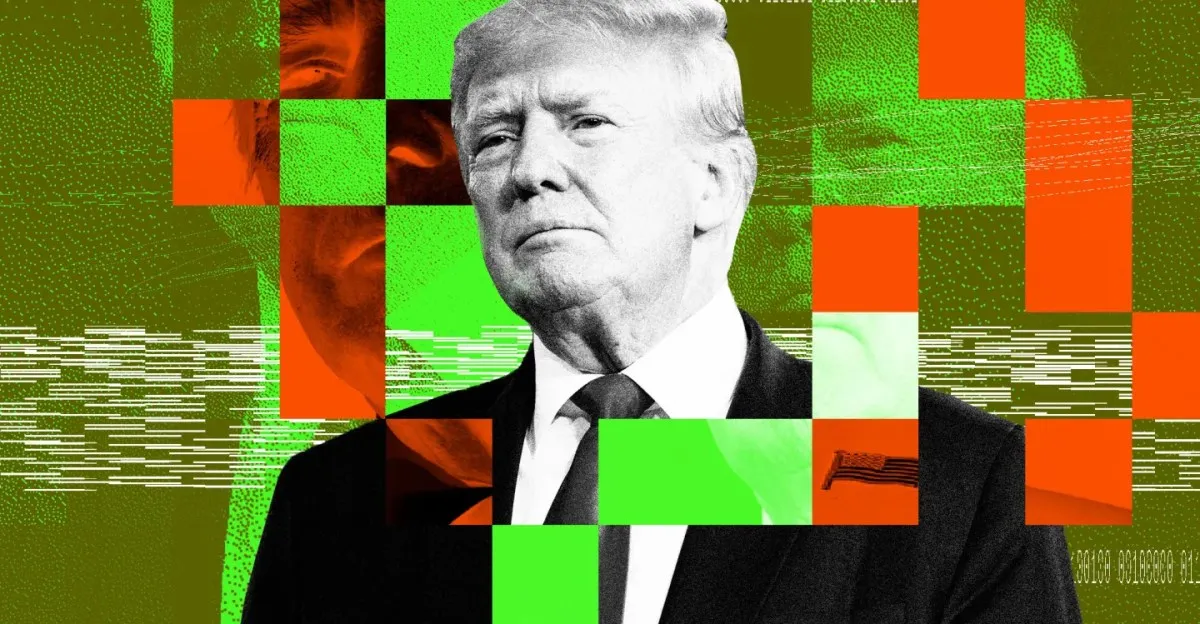
In a significant milestone for the crypto industry, President Donald Trump has officially signed the GENIUS Act into law. This legislation establishes a comprehensive regulatory framework specifically for a type of digital currency known as stablecoins. Under the GENIUS Act, clear rules are set for entities that issue stablecoins, which are digital currencies whose value is pegged to traditional assets, such as the US dollar.
The GENIUS Act lays out essential guidelines concerning who is authorized to issue stablecoins, the requirements for maintaining reserves, protocols in the event of bankruptcy, and obligations to prevent money laundering. During the signing ceremony at the White House, Trump acknowledged the presence of notable figures from the crypto sector, including the CEOs of Coinbase and Tether.
In a notable address, Trump differentiated his administration from the Biden administration, labeling it as “a vicious group of people” intent on “crushing your industry.” He expressed gratitude to the crypto community for their resilience, stating, “I got you guys out of so much trouble.” He further emphasized that the signing of the GENIUS Act represents a “massive validation” of their efforts and innovation.
The GENIUS Act received bipartisan support, successfully passing through both chambers of Congress. Advocates argue that the bill introduces vital protections for the industry while ensuring that the United States remains competitive in the evolving cryptocurrency space. However, the legislation has also faced criticism from some lawmakers across both parties.
Senator Josh Hawley (R-MO) described the bill as “a huge giveaway to Big Tech,” raising concerns that it would encourage companies issuing stablecoins to gather more financial data on consumers. Similarly, Senator Elizabeth Warren (D-MA), the Ranking Member of the Senate Banking Committee, expressed her reservations on the Senate floor, stating that the bill “is riddled with loopholes” and lacks sufficient safeguards for consumers, national security, and overall financial stability.
Critics, including Warren, have warned that legitimizing the stablecoin industry via this legislation could potentially open doors to corruption involving Trump. Notably, Trump’s family has ties to the crypto firm World Liberty Financial, which has launched its own stablecoin, USD1. The White House has maintained that this venture does not create any conflicts of interest for the president, as his assets are held in a trust managed by his children.
Warren elaborated on her concerns, stating, “Through his crypto businesses, President Trump has created an efficient means to trade presidential favors like tariff exemptions, pardons, and government appointments for hundreds of millions—perhaps billions—of dollars from foreign governments, billionaires, and corporations.” She classified the situation as “the single greatest corruption scandal in American history,” arguing that by passing the GENIUS Act, the Senate would not only endorse this corruption but also facilitate its expansion.
As he signed the GENIUS Act, Trump sought to redirect attention to what he referred to as “a big scandal” involving his predecessor. He quipped, “This is not an autopen, by the way,” hinting at the controversies surrounding his administration while celebrating the new legislation.
The signing of the GENIUS Act marks a new chapter in the regulation of stablecoins and the broader cryptocurrency market, reflecting a growing acknowledgment of the importance of digital currencies in today’s economy.